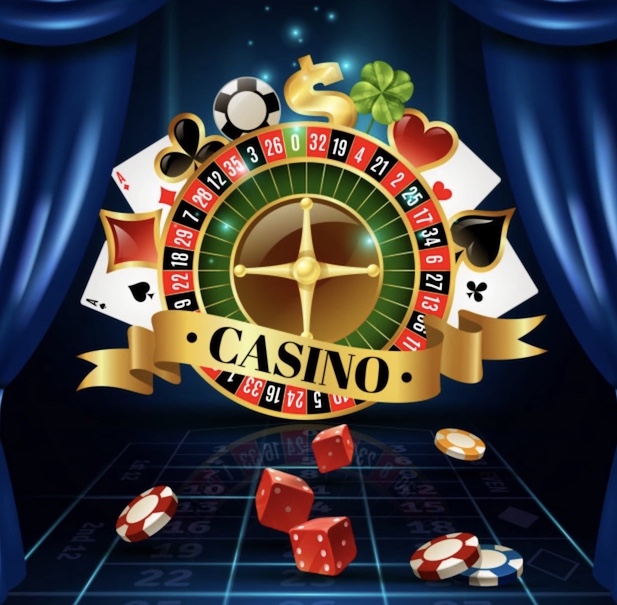
Casino games have enthralled players for decades, drawing them into a realm of excitement, fortune, and fortune. From the sparkling lights of slot machines to the tactical nature of card tables, these games offer a unique blend of fun and risk. However, underneath the surface of this glamour and style lies a intricate relationship of mathematics that shapes every outcome and choice made within the gaming hall.
Comprehending this relationship between gaming activities and mathematics not just boosts the playing experience but may also help participants make knowledgeable decisions. Whether you are a recreational punter or a avid enthusiast, recognizing the math concepts at play can offer important knowledge into chances, ratios, and approaches, ultimately shaping how one approaches these games of luck.
Arithmetic Likelihood in Betting
In the sphere of gambling activities, statistical likelihood plays a vital role in determining outcomes and informing gambler choices. Every activity has a distinct set of regulations and a specific likelihood model that shapes its mechanics. For instance, in activities like roulette, players must understand the odds of landing a certain digit or shade. The probability of certain events occurring can be assessed, and this knowledge can greatly influence betting tactics.
Gambers also need to be informed of the casino advantage, which is the mathematical advantage that casinos hold over gamblers in the long term. This edge varies across various games. In 21, expert players can use tactics to minimize the house edge to as low as 1 percent, while in games like slots, the house edge can be significantly greater. Understanding the casino advantage allows gamblers to make educated choices about which activities to play and how much to wager.
Moreover, probability is crucial in the principle of risk versus reward in gambling. depo 288 Each wager carries a particular risk level, and gamblers must assess the potential payout against that risk. Activities like the poker game require players to not only assess the chances of their own hand winning but also to assess the probabilities of their opponents’ hands. By utilizing mathematical concepts to their gameplay, gamblers can improve their odds of success and participate more strategically in the thrilling world of gambling games.
Expected Worth in Gambling Games
When talking about casino activities, one of the basic concepts rooted in mathematics is the anticipated value. This numerical metric helps gamblers grasp the possible results of their bets over time. In simple terms, anticipated value (EV) determines the average amount a player can anticipate to win or lose per bet if they were to play the activity many times. Each activity has its unique EV, influenced by the probabilities and the casino advantage, which signifies the benefit that the casino holds.
For example, think of a activity like roulette. The expected worth can be derived based on the specific wager placed. If a gambler bets on a individual number, the return is 35 to 1, but the actual chances of success that bet are 1 in 37 (in Euro the roulette game). This results in a detrimental anticipated worth, showing that, on average, players will incur a loss money over a period when playing this kind of wager. Understanding this concept allows gamblers to make more informed decisions about which activities and wagers may be more favorable.
Moreover, the investigation of anticipated value can lead to better money management. Gamblers who comprehend the mathematics behind their activities are often able to set realistic goals. By recognizing their potential losses and gains, they can adjust their playing strategies accordingly, which may improve their total gambling experience overall. As a result, anticipated worth serves as a crucial tool for both novice and experienced players to steer through the often volatile nature of gambling activities.
Tactics and Odds: The Mathematics Behind Winning
In casino games, comprehending the chances is essential for gamblers seeking to enhance their chances of success. Each activity has its own distinct set of probabilities that dictate successful performances, and these statistics are often presented in the rules of the game guidelines or payout schedules. For instance, in games like blackjack, players can boost their chances through tactics such as tracking cards, which depends on math principles to gain an advantage over the house. By acquainting themselves with the odds, players can make more educated determinations on when to bet and when to fold.
Moreover, the idea of expected outcome holds a major function in casino strategies. Expected value calculates the mean outcome of a bet over a period, allowing gamblers to assess whether a specific wager is valuable taking. For example, video slots have a specific return percentage, which can indicate the expected return a gambler can anticipate on their wagers. By opting for activities with better payout percentages, gamblers can lessen the house edge, maximizing their future winnings in the over time.
In conclusion, successful participants often adopt a combination of chance and math strategy to improve their gaming experience. While chance is uncontrollable, managing a betting strategy based on mathematical insights can lead to more advantageous situations. By employing techniques such as bankroll management and game selection, participants can leverage mathematics to maneuver through the random nature of gaming, making the most of their investments and resources at the tables.
